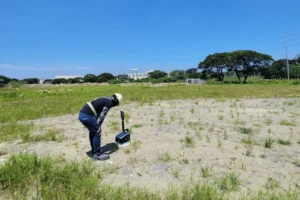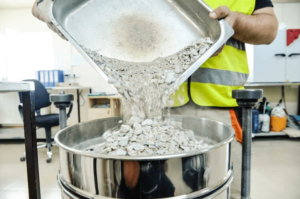Why Overseas Employment Remains a Top Choice for Filipinos
For decades, working abroad has been one of the most sought-after paths for Filipinos looking to improve their quality of life and provide better opportunities for their families. Many pursue jobs overseas not only to earn higher salaries but also to gain international experience, build long-term financial stability, and support loved ones back home. The Philippines has built a strong global reputation for producing hardworking, adaptable, and skilled professionals in various sectors. According to the Department of Migrant Workers, millions of Overseas Filipino Workers (OFWs) contribute significantly to the nation’s economy through their remittances, which help sustain local businesses and improve household income.
Behind these numbers are personal stories of perseverance and resilience. Working abroad often means long periods away from family, but for many, the rewards outweigh the sacrifices. The desire to uplift their families drives Filipinos to explore international opportunities where their skills and work ethic are highly valued. Overseas employment has become a symbol of courage, determination, and hope—a reflection of the Filipino spirit that seeks progress beyond borders.
In-Demand Jobs Overseas for Filipinos in 2025 and Beyond
The demand for Filipino workers remains high across multiple industries worldwide. Healthcare professionals, such as nurses and caregivers, continue to be among the top hires in countries like Canada, the United Kingdom, and Japan. Engineers, construction workers, and skilled tradespeople are in demand in the Middle East, while hospitality professionals thrive in hotels and cruise lines globally. Information technology specialists and digital professionals are also finding opportunities in countries seeking tech-driven solutions.
Here are the top job categories that remain strong in overseas employment:
- Healthcare (nurses, caregivers, medical technicians)
- Construction and engineering (electricians, welders, civil engineers)
- Hospitality and tourism (chefs, hotel staff, cruise crew)
- Information technology (software developers, systems analysts)
- Domestic and caregiving roles
As automation and technology evolve, new opportunities are emerging in digital marketing, logistics, and remote support services. These fields provide alternatives to traditional overseas work while offering the same potential for global career growth. With the right training and credentials, Filipinos can stay competitive in the international job market for years to come.
How to Find Legitimate Jobs Overseas from the Philippines
Securing legitimate employment overseas requires careful research and compliance with official regulations. The Philippine Overseas Employment Administration (POEA), now under the Department of Migrant Workers (DMW), oversees the licensing of recruitment agencies and the validation of overseas job offers. Applying through accredited agencies is the safest way to avoid scams and ensure proper documentation.
Filipinos looking for jobs overseas should always:
- Verify the recruitment agency’s license through the DMW website
- Double-check the legitimacy of job offers with official records
- Avoid paying placement fees without receipts
- Review the employment contract thoroughly before signing
- Report suspicious recruiters to authorities
Legitimate overseas job portals, such as POEA-accredited listings and embassy job boards, provide reliable sources for applicants. Understanding job terms, salary breakdowns, and working conditions can help prevent future disputes or misunderstandings. Being vigilant at the start of the job search ensures a safer and smoother overseas employment experience.
Essential Requirements and Documentation for Working Abroad
Before deployment, every aspiring overseas worker must complete several important requirements. A valid passport, working visa, and signed employment contract are just the beginning. Other documents include NBI clearance, medical examination certificates, and training certifications specific to the worker’s field.
Two vital government-mandated sessions must also be completed: the Pre-Employment Orientation Seminar (PEOS) and the Pre-Departure Orientation Seminar (PDOS). These sessions educate Filipinos on their rights, obligations, and safety measures while working abroad. Applicants must also prepare for embassy interviews, which assess qualifications and readiness for the role.
Typically, the overseas employment process can take several months, depending on job demand and document processing. Following all legal procedures ensures that workers are properly protected under Philippine labor laws and international agreements. Patience, preparation, and attention to detail are essential for anyone pursuing jobs overseas from the Philippines.
Countries with the Best Opportunities for Filipino Workers
Certain countries have consistently remained top destinations for Filipino workers due to strong demand, higher salaries, and better living conditions. The Middle East continues to employ a large number of OFWs, particularly in Saudi Arabia, Qatar, and the United Arab Emirates. Meanwhile, Japan and South Korea are hiring skilled workers under government-to-government programs. Canada and Australia attract Filipinos seeking long-term residency or family migration opportunities.
Europe also offers attractive employment options for healthcare and technical professionals. Each country provides distinct advantages:
- Middle East: tax-free income and high demand for skilled trades
- Japan: stable employment and cultural exchange programs
- Canada: pathway to permanent residency
- Australia: competitive wages and family-friendly work environments
- Europe: strong labor protections and growing need for healthcare workers
Understanding cultural differences, workplace etiquette, and local laws helps Filipinos adapt more quickly to their host countries. Embracing diversity and professionalism enhances their global employability and opens new doors for career advancement abroad.
Challenges and Realities of Working Overseas
While the promise of financial stability is strong, working abroad also brings challenges. Homesickness, cultural differences, and long working hours can take an emotional toll. Some workers face contract disputes or unsafe work environments, which emphasize the need for legal awareness and support networks.
Adjusting to a new culture and lifestyle requires patience and open-mindedness. Building friendships with fellow OFWs or joining Filipino community groups can ease the transition. Workers must also prioritize their safety, know their rights under labor laws, and contact Philippine embassies for assistance when necessary.
Financial management is another challenge. Many overseas workers struggle to save due to family obligations or lifestyle inflation. Proper budgeting, investment education, and long-term planning help make the most of overseas earnings. The key is to turn temporary overseas work into lasting financial security.
Preparing Yourself for an Overseas Career: Skills, Training, and Mindset
Success abroad begins long before departure. Filipinos who invest in skills development and training have a higher chance of securing stable employment. Technical courses, language training, and certifications tailored to international standards are crucial. For example, obtaining TESDA or NCII certifications increases job readiness for skilled work.
Essential soft skills like communication, adaptability, and cultural awareness also make a big difference. Employers value professionalism and reliability, traits Filipinos are already known for. Those preparing for jobs overseas should focus on:
- Improving English and other language proficiency
- Gaining industry-specific certifications
- Building digital literacy
- Practicing professionalism and discipline
- Preparing mentally for cultural and lifestyle adjustments
A growth mindset allows Filipinos to thrive in challenging environments. By embracing lifelong learning and maintaining a positive attitude, they can turn overseas work into a stepping stone toward personal and professional success.
How Returning OFWs Can Use Their Overseas Experience to Build Local Opportunities
Returning OFWs bring home valuable skills, international exposure, and new perspectives. Many have gone on to start businesses, teach, or join industries that benefit from their global experience. The government supports these efforts through reintegration and livelihood programs offered by the Overseas Workers Welfare Administration (OWWA).
Overseas experience often enhances leadership and entrepreneurial capabilities. Some workers use their savings to open local enterprises or invest in property and education. Applying lessons learned abroad—such as discipline, time management, and service excellence—can create new opportunities in the Philippines.
Transitioning back to local life may take time, but it can lead to meaningful growth. By planning carefully and using available resources, returning OFWs can transform their overseas journey into a foundation for long-term success at home.
Frequently Asked Questions (FAQ)
Q1: How can I make sure a job offer abroad is legitimate?
Check the DMW or POEA website to verify the agency’s license and the employer’s accreditation. Never pay fees without official documentation.
Q2: What are the most common countries hiring Filipinos right now?
The Middle East, Japan, Canada, Australia, and the United Kingdom remain top destinations for Filipino workers.
Q3: Do I need a college degree to work overseas?
Not always. Many skilled and technical jobs only require TESDA certifications or relevant work experience.
Q4: What should I do if I experience problems with my employer abroad?
Contact the nearest Philippine embassy or labor attaché. They can provide legal assistance and help resolve employment issues.
Q5: Can I apply for jobs overseas without a recruitment agency?
Yes, some countries allow direct hiring, but applicants must still comply with DMW verification processes to ensure protection.
Q6: How can I prepare financially before working abroad?
Save for processing costs, emergency funds, and initial expenses upon arrival. Creating a clear financial plan helps maximize earnings.
Q7: What’s the average processing time for an overseas job application?
It varies depending on the job and country but typically takes between one to six months.
Takeaway
Pursuing jobs overseas from the Philippines offers life-changing opportunities for growth, financial independence, and cultural discovery. With careful planning, the right training, and awareness of legal requirements, Filipinos can build sustainable and rewarding global careers. Overseas employment is not just about earning—it’s about building a better future, learning from diverse experiences, and returning home stronger, wiser, and ready to create lasting change.







